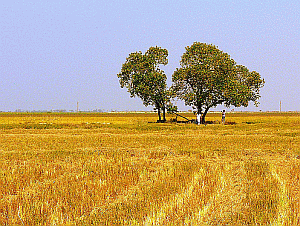
Food and agriculture are fundamental to all peoples, in terms of both production and availability of sufficient quantities of safe and healthy food, and as foundations of healthy communities, cultures and environments. All of these are being undermined by the increasing emphasis on neo-liberal economic policies promoted by leading political and economic powers. This statement contains alternative proposals, in favour of the peoples' needs.
Instead of securing food for the peoples of the world, global institutions such as the World Trade Organisation (WTO), International Monetary Fund (IMF) and the World Bank (WB), have presided over a system that has prioritised export-oriented production, increased global hunger and malnutrition, and alienated millions from productive assets and resources such as land, water, fish, seeds, technology and know-how. Fundamental change to this global regime is urgently required.
This document draws the main lines and the proposals needed in order to operate such a change. Among them, first of all, it states the people's food sovereignty as a right. In order to guarantee the independence and food sovereignty of all of the world's peoples, it is essential that food is produced though diversified, community based production systems.
Secondly, trade rules must guarantee food sovereignty. Global trade must not be afforded primacy over local and national developmental, social, environmental and cultural goals. Then, the neo-liberal policies in food and agriculture, promoted by the international institutions, as well as and the dumping practices, must be stopped.
Finally, in order to compliment the role of local and national governments, there is clear need for a new and alternative international framework for multilateral regulation on the sustainable production and trade of food, fish and other agricultural goods. This document establishes some principles to be respected for it, such as people's food sovereignty; the right to protect domestic markets; the precautionary principle; genuine international democratic participation mechanisms; priority to domestic food production, and others.